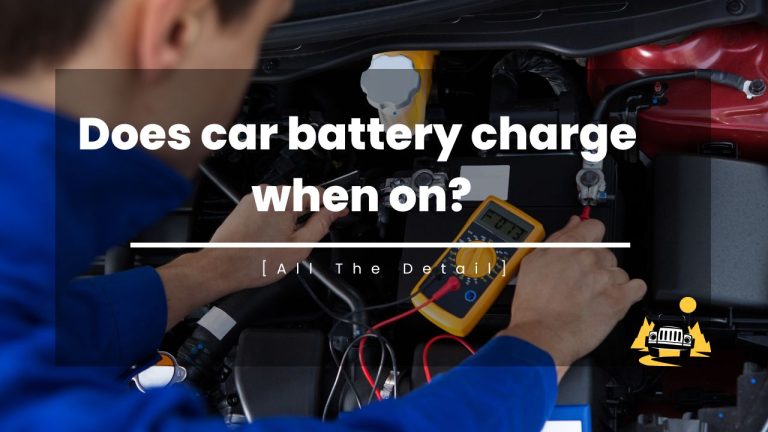Car Smells Like Rotten Eggs When Ac Is On
Sometimes when you get in the car, turned on the AC, and instantly feel regrets, your nostrils are going to fill up with the smell of rotten eggs. Your first thought will be “oh I forgot to take out the groceries” but it’s not that, you don’t have groceries in your car.
So what caused this smell? Most of the time it’s your AC.
So a question arises why your car smells like rotten eggs when AC is on? If you want to know the answer and explore its danger level, then keep reading this article. So hang tight and let us dive straight into this topic.

Car smells like rotten eggs when ac is on
It is a sign of hydrogen sulfide buildup when your automobile starts to smell like rotten eggs. The following are the reasons why you have a rotten egg smell from car AC:
- Catalytic Converter Broken
- Pressure Sensor or fuel filters problem
- Old Transmission fluid
We will urge you to contact a mechanic right away in this circumstance.
The emission systems in your automobile typically transform hydrogen sulfide into gases like sulfur dioxide before releasing them through the exhaust. However, if one of those components, such as the catalytic converter, malfunctions, hydrogen sulfide may readily migrate through the air conditioner and into the rest of the vehicle.
You would risk losing your life if it occurred.
Additionally, the rotten egg smell inside your automobile is not only caused by a damaged catalytic converter. We’ll go over some other frequent reasons for this offensive odor that you should be aware of.
4 Common Causes of Rotten Eggs Smell
We will claim that there are at least three things that should instantly spring to your head when your car smell like rotten eggs while running. Additionally, we will explore each of these three factors in the section below:
Catalytic converter broken
The function of a catalytic converter is to transform and release dangerous gases from your automobile. The converter would ultimately become dysfunctional and stop working as a result of whatever damage it sustained.
Underneath the automobile is where you’ll find the catalytic converter. From there, while driving, dirt and debris might harm the converter. And if proper care isn’t taken off it, it won’t take long to wear out and break. The hydrogen sulfide present in too many gas byproducts increases the risk of a converter catching fire.
When this occurs, you should take your car to a repair facility to either have the converter fixed or replaced.
Faulty fuel filters
The amount of fuel within the car’s engine is controlled by the fuel pressure sensor. Oil and gasoline can overflow the converter if the sensor doesn’t do its job properly. In such a case, it would block the converter, preventing it from functioning correctly.
This problem can also be brought on by the gasoline filters that function in combination with the pressure sensor. To prevent this, swap out the outdated fuel filter.
Transmission fuel
When an automobile’s system has old transmission fluid, it frequently emits a rotten-egg stench. The cause is that, as it stagnates, it might seep out of its sealed space and emit that foul odor.
The way transmission fluid functions are by lubricating the gear system in your automobile and cooling the engine. It may degrade and begin to clump over time, creating debris that ultimately causes leaks.
Every 30,000 to 60,000 miles, the transmission fluid in a manual automobile has to be changed. The range would be greater for automatic vehicles, ranging from sixty thousand to a hundred thousand miles.
To maintain optimum performance in vehicles that frequently receive heavy-duty use, it is best to change the transmission fluid every half the recommended number of miles.
Danger level
It is not safe to drive a car with a rotten egg smell. As much as possible, avoid driving if the interior of your automobile smells like rotten eggs. In addition to making you breathe in hydrogen sulfide, it may also cause your automobile to catch fire.
The effects of hydrogen sulfide include vomiting, headaches, dizziness, insomnia, apnea, coma, and even death. There is also a risk of losing consciousness while driving and endangering other people.
We advise you to pull over as soon as the strong smell of rotten eggs reaches your nose and exit your vehicle.
3 Best Ways to Get Rid of the Rotten Egg Smell
Now that you are aware of the source of the rotten egg smell in your automobile, you need to determine the best course of action.
Sure, you can take it to a mechanic, but even if that’s your plan of action, we strongly advise that you follow the steps below so that you are aware of what is happening and they don’t try to pull a fast one on you and charge you more.
Here is how to get rid of the rotten egg smell.
Scan for trouble code
The first thing you should do is determine what the code on your car’s check engine light is telling you because there’s a strong probability that it has one at this point as well.
To accomplish this, you may either purchase your own high-quality automotive scan tool or drive your vehicle to a nearby AutoZone and have them read the code free of charge. To make sure there isn’t a code and a faulty check engine light, we strongly advise performing this procedure even if you don’t see a check engine light.
Check transmission fluid
Compare the last time someone changed the oil to your vehicle’s transmission fluid service interval. There’s a fair possibility the stench is caused by transmission fluid if there is a significant disparity here.
If you run out of fluid, you’ll need to inspect a ton of different parts to figure out where the leak could be, patch the leak, and then replace the fluid.
Check fuel filters
The next suggested test is to examine the fuel pressure sensor’s output specifications but to do so, you’ll need an automotive scan tool.
However, it’s doubtful that the sensor would fail without also flashing an engine code.
It’s a rather reasonable assumption to make after checking all of these possibilities that the scent is being caused by a malfunctioning catalytic converter. Replace the converter to eradicate the odor.
How can I get rid of the bad automobile smell?
Check for leaks and replace your fluid. The good news is that your engine won’t need cleaning. The rotten egg stench will go away if you replace the problematic transmission fluid or engine component. Anytime you smell something odd while operating your engine, like smoke or burning, you should investigate.
Why does the AC in my car smell like sewage?
If your AC unit is frequently used or your drain line is damaged, it is more likely to remain constantly damp, which provides a favorable environment for the growth of mold and bacteria. The odor will enter your car through the dash vents as a result of the air passing through the evaporator and the mold growth on the unit.
What scent does AC coolant have?
The chemical refrigerant hisses when it leaves the coil as a result of the high pressure that is kept in place. Odors of ether, chloroform, or sweetness may be coming from the air conditioner’s vents or the unit itself. The scent of the refrigerant is this one.
How can I tell if the AC filter is clogged?
A white sheet test is a creative approach to finding out if the air filter is unclean. This entails hanging a fresh, white sheet at least 5 inches away from a vent for at least an hour. Your air filter is unclean if the sheet starts to become gray. The filter is dirtier the grayer the sheet is.
What scent does a burned-out compressor have?
The smoking of an air compressor can occur for several reasons and without prior notice. It may occasionally smell like burned rubber when this occurs. The air pump and engine are kept lubricated thanks to the air compressor’s design, which allows for adequate oil circulation.
Conclusion
A crucial aspect of your life is your automobile. Thus, it is your job to take care of it. And when we are talking about rotten egg smell, we are not just talking about car safety; we are also talking about your safety.
When the car smells like rotten eggs when AC is on, this is a clear indication of hydrogen sulfide leakage due to the problem going on with the AC. So keep away from your car and don’t drive it as much as possible, and call for professional help. We hope this article on the rotten egg smell has helped you a lot.





